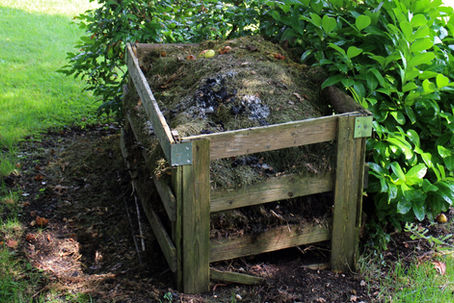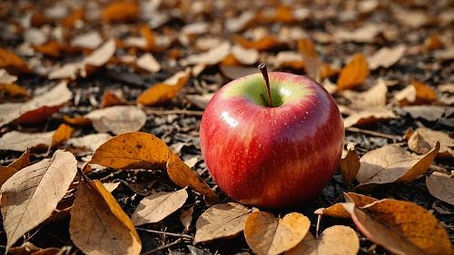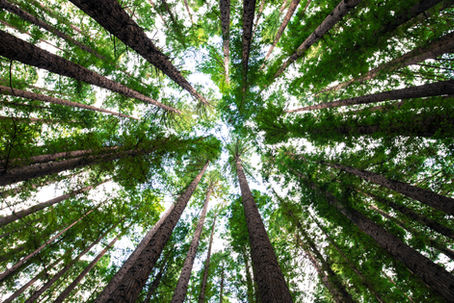top of page


Salmonella Bacteria: Science & Health
Salmonella is an opportunistic bacterium. Known for its effects on health, it can cause serious foodborne illnesses. All Salmonella...

Sylvia Rose
Feb 23, 20254 min read


Kimchi: Microbes, Acids & Fermentation
Kimchi, a Korean fermented delicacy, is popular throughout the world, made by activity of billions of microbes. Ingredients vary but...

Sylvia Rose
Feb 22, 20255 min read


Compost Heat: Microbes & Decomposition
Compost is created by billions of microbes in a natural exothermic process of biological oxidation, generating heat to make rich soil...

Sylvia Rose
Feb 21, 20253 min read


Compost: Heart of Sustainable Gardening
Compost is the heart of sustainable gardening. Composting turns scraps into nutritious soil, with help from microbes and other organisms....

Sylvia Rose
Feb 21, 20254 min read


Fruit Breakdown: Decomposition of an Apple
Apples ripen and fall to undergo earthly decomposition. Transformation from a crisp fruit to disappearance in the soil ecosystem is a...

Sylvia Rose
Feb 18, 20256 min read


Polyphenols: Plants & the Environment
Polyphenols in plants are protectors, beautifiers and communicators. With diverse structures and functions these phytochemical compounds...

Sylvia Rose
Feb 17, 20254 min read


Phytochemicals: Natural Chemicals of Plants
Phytochemicals are chemical compounds created by plants. They can enhance a plant's color, flavor, and aroma and provide defense systems...

Sylvia Rose
Feb 17, 20255 min read


Fructose (Fruit Sugar): Sweetest Saccharide
Fructose is a simple sugar, a member of the carbohydrate family. It's found especially in fruits and honey. Fructose is known for...

Sylvia Rose
Feb 16, 20254 min read


Microbe Glue (EPS) in Biofilm Formation
Biofilms are prosperous microbial communities, complex networks of microorganisms including bacteria, fungi and algae. Their secretions,...

Sylvia Rose
Feb 16, 20255 min read


Algae: Evolution, Science & Environment
Algae are a diverse range of species, from microscopic phytoplankton to massive kelp forests. Their variety comes from lack of a common...

Sylvia Rose
Feb 16, 20254 min read


Fatty Acids: Environment & Human Health
Fatty acids are compounds with strong functions in biological processes of the human body. Found in plants, microbes to the largest...

Sylvia Rose
Feb 13, 20255 min read


Sugars D-Galactose & L-Galactose: Nutrition
D-Galactose and L-Galactose are forms of the simple sugar galactose . They have the same molecular formula but differ in structure and...

Sylvia Rose
Feb 13, 20253 min read


Acetogenesis in Nature & Human Health
Acetogenesis influences ecosystems and human health. Reducing organic matter by microorganism action, acetogenesis makes acetic acid, the...

Sylvia Rose
Feb 11, 20253 min read


Acetate in Nature: Vital Functions & Health
Acetate is a short chain fatty acid produced by microbes. In natural processes and biological functions, acetate has many tasks in...

Sylvia Rose
Feb 11, 20254 min read


Photosynthesis: Nature's Energy Production
Photosynthesis supports life on Earth. In this process, plants turn sunlight into sugars for energy and provide much-needed oxygen to...

Sylvia Rose
Feb 8, 20253 min read


Carbon Fixation: Environmental Heath & Ecology
Carbon fixation optimizes the health of the environment. By transforming carbon dioxide into organic compounds, this process forms the...

Sylvia Rose
Feb 8, 20252 min read


Glucose in Nature: Ecology & Environment
Glucose is a carbohydrate, a simple sugar or monosaccharide. It fuels life and ecology. Made by plants, glucose empowers microorganisms...

Sylvia Rose
Feb 8, 20255 min read


Structures of Starch: Amylose & Amylopectin
Starch is a carbohydrate indispensable to food, the environment and plant biology. It's an energy reserve for plants, consisting mainly...

Sylvia Rose
Feb 6, 20255 min read


Botulism: Causes, Symptoms & Prevention
Botulism is a serious food-borne illness caused by potent toxin of the bacterium Clostridium botulinum . This neurotoxin can lead to...

Sylvia Rose
Feb 5, 20255 min read


Ammonium (NH+4): Nitrogen Needs of Plants
Ammonium is an ion integral to biology, ecological processes, agriculture, industry and human nature. Close to its gaseous parent ammonia...

Sylvia Rose
Feb 5, 20256 min read
bottom of page